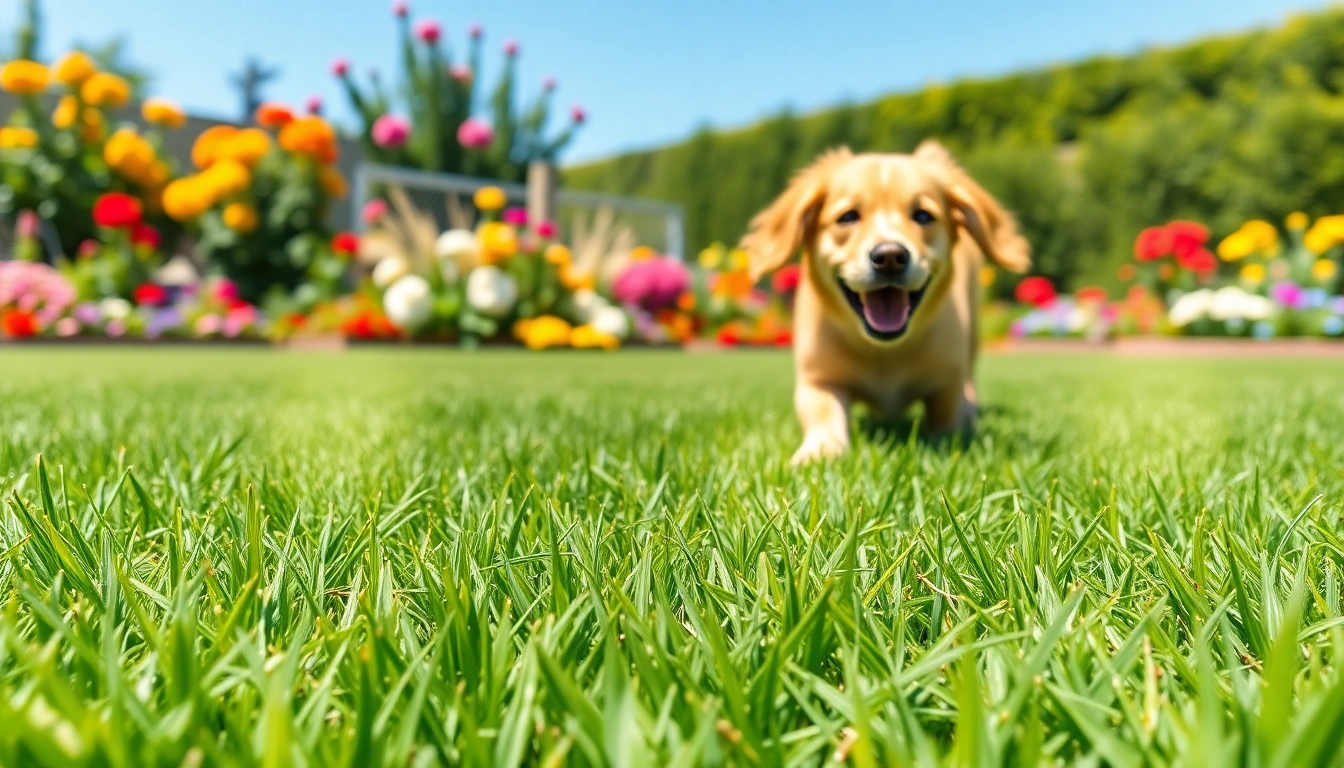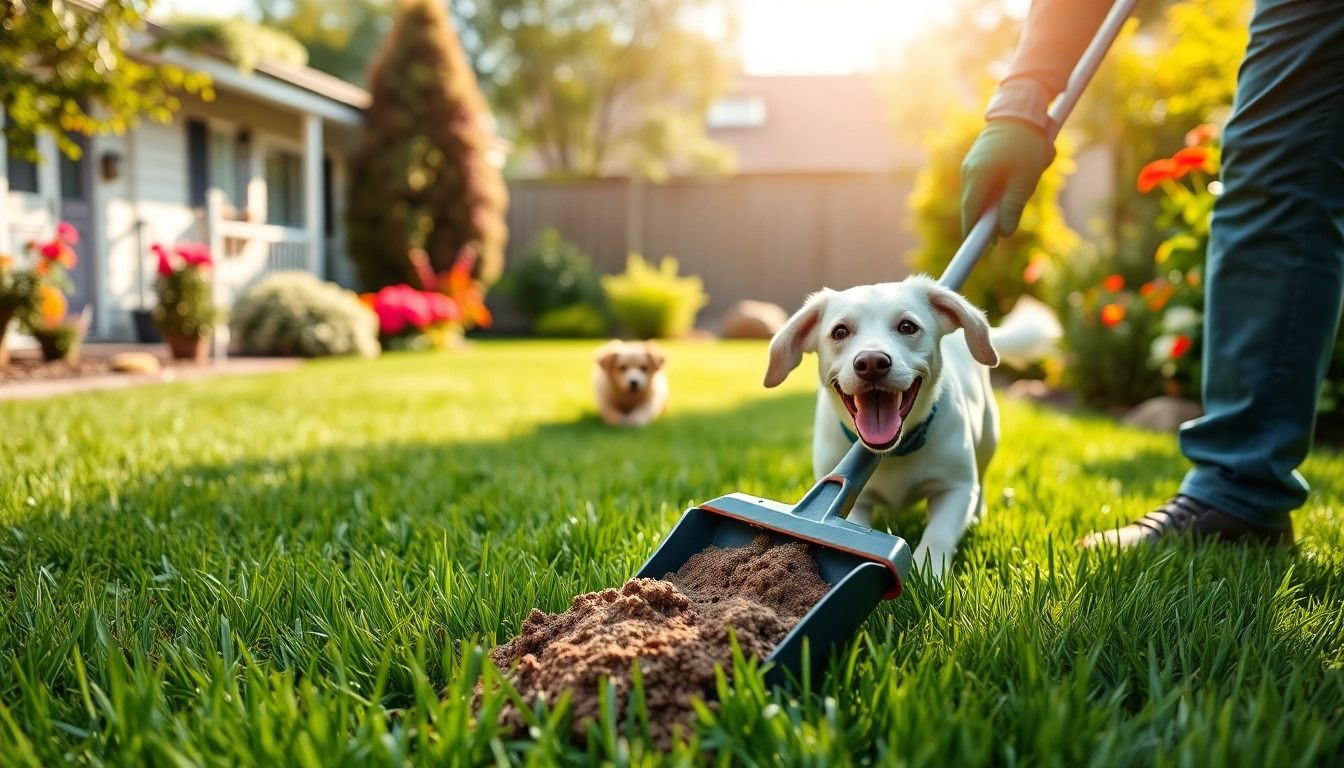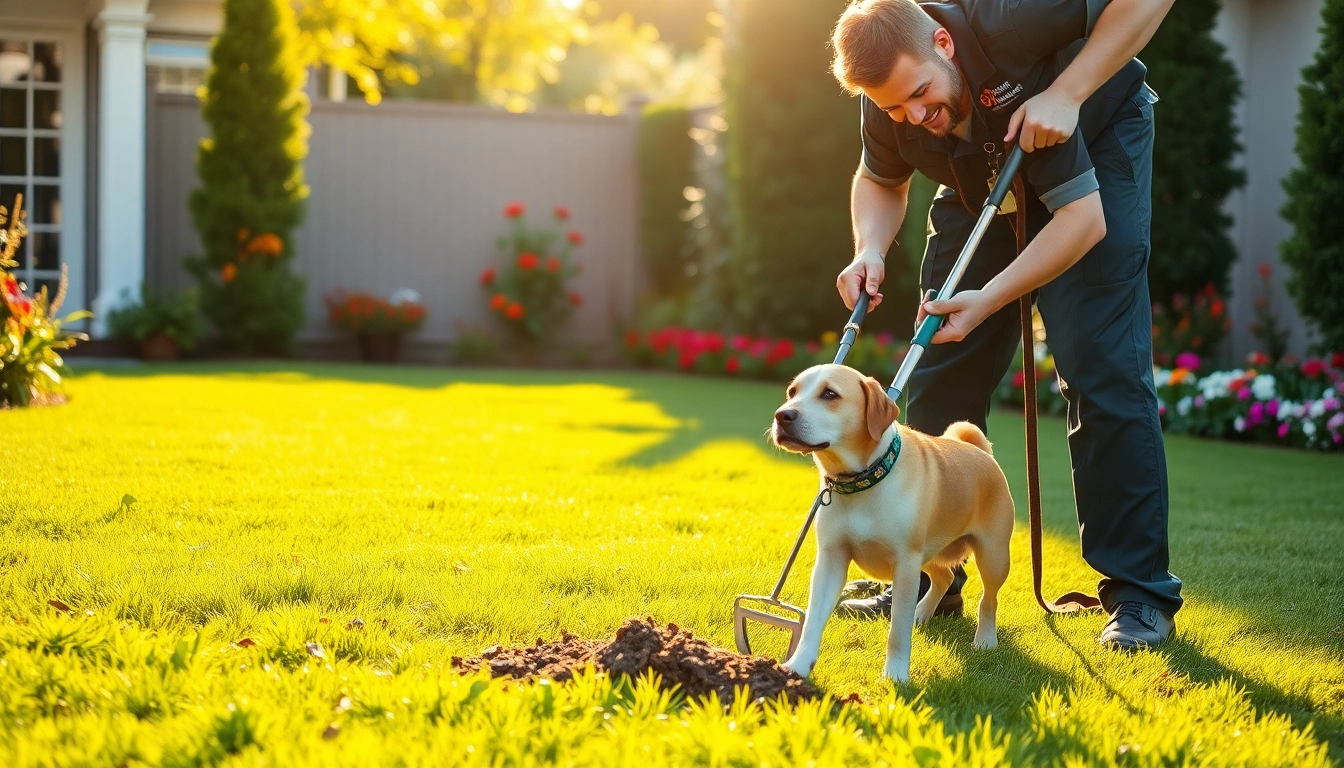Understanding Dog Urine Smells Strongly of Ammonia
For dog owners, encountering urine that smells strongly of ammonia can be both perplexing and concerning. This specific odor often raises questions about health, behavior, and how to manage one’s home environment effectively. Understanding why dog urine smells strongly of ammonia is critical for maintaining both the health of your pet and the integrity of your yard. In this article, we will explore what causes that ammonia smell, its effects on grass, how to identify urine spots in your yard, and ways to address these challenges comprehensively.
What Causes the Ammonia Smell?
The distinct smell of ammonia in dog urine primarily stems from the nitrogen compounds present. When dogs metabolize protein, their bodies convert it into urea, a compound that, when broken down by bacteria, releases ammonia. There are several reasons why your dog’s urine might have increased ammonia levels:
- Diet: Dogs that consume a protein-rich diet or certain types of commercial dog food can excrete more urea. High protein levels can lead to more concentrated urine, which can amplify the ammonia smell.
- Dehydration: If your dog is not drinking enough water, their urine becomes concentrated, exacerbating the smell of ammonia. Dehydration can occur for various reasons, including illness or inadequate access to fresh water.
- Medical Conditions: Certain health issues, such as urinary tract infections or liver disease, can alter the composition of a dog’s urine, leading to an ammonia smell.
An important consideration for dog owners is to monitor their pet’s health and dietary habits, as these factors contribute directly to the urine’s odor. When in doubt, consulting with a veterinarian can provide clarity.
The Effects of Ammonia on Grass
The presence of ammonia in dog urine can have detrimental effects on your lawn. Here are the primary concerns regarding the impact of ammonia on grass:
- Grass Burns: High levels of nitrogen from concentrated urine can lead to ‘burn’ spots on your grass, characterized by yellow or brown patches. This occurs because the nitrogen in the urine is too rich for the grass to handle in one concentrated area.
- pH Imbalance: An increase in ammonia can alter the pH of your soil, which can make it less hospitable for grass growth. Most grasses require a specific pH range to thrive, and an imbalance can hinder growth and lead to other lawn issues.
- Encouragement of Weeds: High nitrogen levels can promote weed growth, outcompeting the grass for nutrients and space.
These issues underscore the importance of managing your dog’s urination habits and understanding the overall health of your lawn.
Identifying Urine Spots in Your Yard
Identifying where your dog has urinated is crucial for effective lawn management. Here are some tips for spotting urine spots in your yard:
- Visual Inspection: Look for yellow or brown patches on your lawn. Sometimes, these spots are easier to spot when the grass is wet. Take note of any discoloration, especially in areas where your dog frequents.
- Odor Detection: Use your sense of smell to hone in on the areas with a strong ammonia smell. Dog urine typically has a potent scent, particularly in concentrated spots.
- Behavioral Patterns: Observe your dog’s routine. If they often urinate in the same area, it’s likely to be more affected, thus easier to identify.
Once identified, you can take targeted measures to treat and mitigate these spots effectively.
Preventing Dog Urine Smells Strongly of Ammonia
Preventing the strong ammonia smell associated with dog urine involves a combination of training, lawn care practices, and the use of effective cleaning products. Below are several strategies to consider:
Training Your Dog to Urinate in Designated Areas
One of the most effective ways to manage where your dog urinates is through appropriate training:
- Designated Potty Spots: Train your dog to use specific areas of your yard or garden for urination. You can do this by consistently leading your dog to that spot and rewarding them when they urinate in the designated area.
- Positive Reinforcement: Use treats and praise to encourage your dog when they use the specific zone for urination. This approach helps establish a routine, reducing the risk of accidents elsewhere in your yard.
- Diverse Training Techniques: If your dog seems resistant to learning, consider alternative training methods, such as clicker training or scent markers, to reinforce desired behaviors.
Using Enzyme Cleaners Effectively
Enzyme cleaners are crucial in treating areas where your dog has urinated. They work by breaking down urea and the ammonia in dog urine, eliminating odors:
- Application: Spray the affected area generously and allow the cleaner to sit for the recommended time to ensure it penetrates the soil.
- Repeat Treatment: For persistent odors or severely affected areas, you may need to repeat the application several times.
- Regular Maintenance: Make it a routine to clean areas where your dog frequents, as this can deter them from continuing to use those spots once odors have been eliminated.
Best Practices for Lawn Care
Good lawn care practices can mitigate the effects of dog urine:
- Watering: Regularly watering your lawn can help dilute the concentration of nitrogen in dog urine, reducing its impact. Aim to water immediately after your dog urinates.
- Fertilization: Balance nitrogen levels in your lawn by using a balanced fertilizer to counteract the concentrated nitrogen from dog urine.
- Strong Grass Varieties: Consider planting more resilient grass types that can withstand urine exposure better than others.
Solutions for Eliminating Dog Urine Smells Strongly of Ammonia
Once the smell is present, swift action can help restore a pleasant environment both in your yard and home. Here are comprehensive solutions to tackle the odor:
Natural Remedies That Work
Home remedies can be effective in addressing the ammonia smell:
- Vinegar Solution: A mixture of equal parts vinegar and water can neutralize odors. Spray it on treated areas, let it sit, then rinse afterwards.
- Bakings Soda: Sprinkling baking soda on spots can help absorb odors. Leave it for a few hours before vacuuming it up.
- Essential Oils: While some essential oils can mask odors with pleasant fragrances, be careful with which oils you use, as some can be toxic to pets. Always do your research first.
Commercial Products to Consider
If home remedies fall short, there are plenty of commercial products designed specifically for eliminating odors:
- Odor Neutralizers: Look for specially formulated sprays that target pet odors. These products often contain enzymes and surfactants to eliminate the source of the smell.
- Soil Treatment Products: Some products are designed to amend soil impacted by dog urine, helping restore health and balance to your lawn.
DIY Cleaning Solutions
Making your own cleaning solution can be both economical and effective. Here is a simple recipe:
- Ingredients: 1 cup of baking soda, 2 cups of vinegar, and 2 cups of water.
- Method: Mix the ingredients in a spray bottle. Spray it on the affected area, allow it to sit, then scrub and rinse thoroughly.
Maintaining a Pleasant Smell Around Your Home
Creating a smell-free environment requires ongoing effort. Here are strategies for maintaining cleanliness and reducing odors:
Creating a Pet-Friendly Environment
A pet-friendly environment doesn’t mean having to compromise on cleanliness. Here are some tips to accomplish this:
- Dedicated Pet Areas: Establish areas in your home that are pet-free or less affected by pet odors, like designated rooms or mats.
- Air Purifiers: Consider investing in high-quality air purifiers designed to target pet odors. HEPA filters can also reduce allergens.
- Regular Grooming: Bathing and grooming your dog regularly helps keep odors at bay and reduces the overall smell in your home.
Long-Term Lawn Care Tips
To foster a healthy lawn long-term, consider these care tips:
- Soil Testing: Regularly test your soil to keep track of its pH and nutrient levels, adjusting your care regimen accordingly.
- Seasonal Lawn Care: Implement seasonal practices that include aerating, overseeding, and adequate fertilization based on the season.
Regular Home Cleaning Techniques
On the home front, regular cleaning techniques can keep pet odors in check:
- Frequent Vacuuming: Use a vacuum with a HEPA filter to trap pet dander and odors effectively.
- Washing Fabrics: Regularly wash pet beds, blankets, and other fabrics that might trap odors.
- Surface Cleaning: Use pet-safe cleaning agents on surfaces where your dog rests or plays to eliminate residual odors.
When to Seek Professional Help
If problems persist despite your best efforts, it may be time to reach out for professional assistance. Here are signs that indicate the need for expert help:
Identifying Persistent Ammonia Issues
If the ammonia smell lingers despite cleaning, it can indicate a deeper issue:
- Odor Recurrence: Continuous ammonia odors at the same spots may suggest that the underlying issues have not been resolved.
- Health Concerns: If you notice abnormal behavior in your dog or suspect a health issue, seek professional veterinary advice.
Hiring Lawn Care Professionals
For severe lawn damage, professional lawn care services can assess the situation and recommend suitable treatments:
- Soil Rehabilitation: Experts can test and amend soil to reverse damage caused by urine.
- Comprehensive Lawn Care: Lawn care services can help implement a long-term plan for maintaining the health of your grass.
Consulting Pet Behavior Experts
If your dog’s urination habits are problematic, consider seeking the help of a pet behavior expert:
- Behavioral Assessment: A professional can provide insights into your dog’s behavior, helping tailor a training program.
- Effective Solutions: Experts can suggest the best methods for altering your dog’s urination patterns, thus decreasing the ammonia problem.
By understanding the causes of dog urine smells strongly of ammonia and taking proactive steps, dog owners can effectively manage their lawn health, maintain a pleasant home environment, and ensure the wellbeing of their pet. Through consistent care, targeted training, and using natural or commercial solutions, the challenges associated with dog urine can be effectively mitigated.



